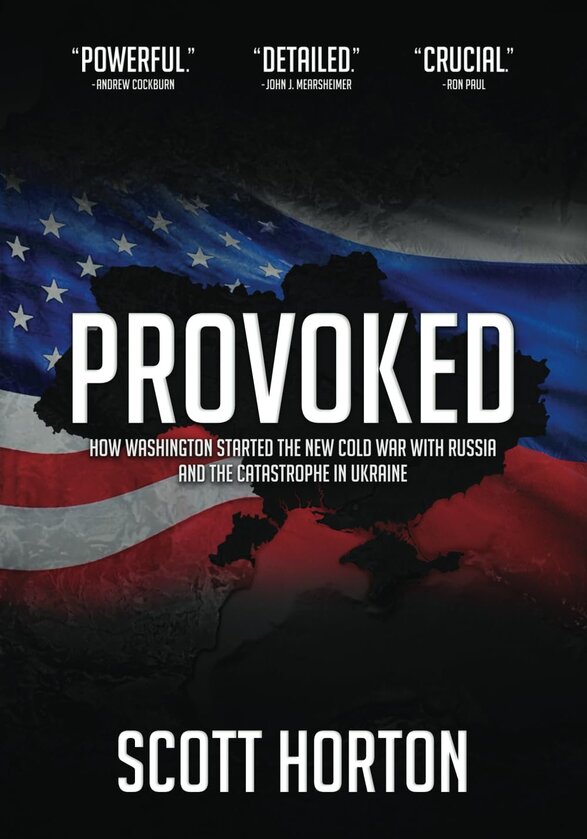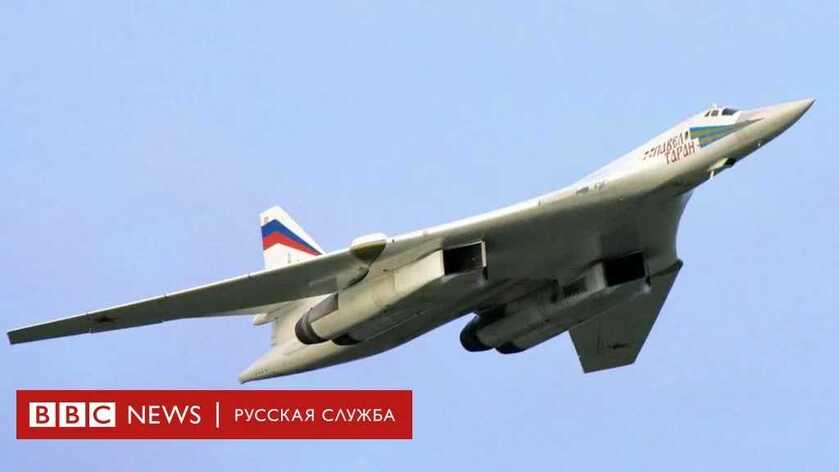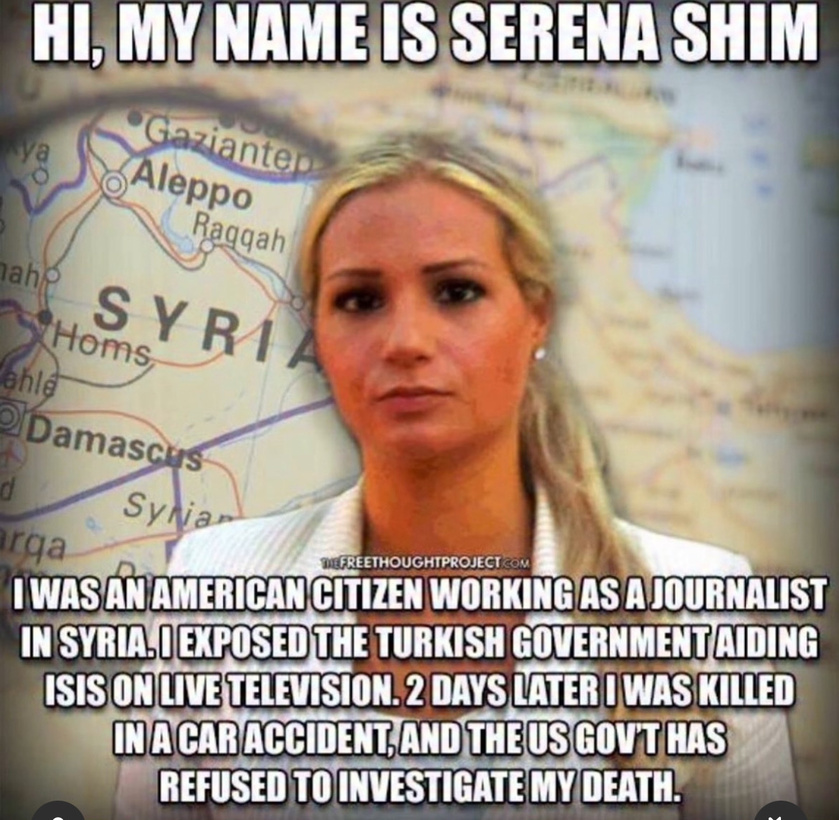Xpost
I just finished reading "Provoked" by Scott Horton (@scotthortonshow) on the origins of the Ukraine war.
I have to say I'm beyond impressed at how detailed and well researched the book is. I read a LOT of history books and it's extraordinarily rare to see a work done so meticulously.
The title gives it away, the book's main thesis is that the war was provoked by the West. A conclusion any intellectually honest person who's spent a tiny bit of time studying the matter would make.
The real value of the book is to back this up with a considerable amount of sourced evidence.
Let me just take an example to illustrate this: the West's broken promise to Russia that NATO would not expand "one inch eastward" following the end of the Cold War, a fact so many people in the West still deny to this day despite the evidence.
Horton could have just satisfied himself with sourcing the actual record from the US National Security Archive of US Secretary of State James Baker telling Gorbachev exactly this during a February 9 1990 meeting in Moscow (and not only once, but 3 times: nsarchive.gwu.edu/document/16116…). This would have sufficed.
But he went much further: he somehow found dozens and dozens of instances of top-level Western officials promising the Russians at the time that NATO would not expand East.
For instance you had West German Foreign Minister Hans-Dietrich Genscher at a press conference with Baker saying that they "were in full agreement that there's no intention to extend the NATO area of defense and the security towards the East", and that this "holds true for all of the Eastern countries".
Other example, in a meeting between the political directors of the foreign ministries of the U.S., the UK, France and Germany on March 6, 1991, German representative Jurgen Chrobog said, “We made it clear in the two-plus-four negotiations that we would not expand NATO beyond the Elbe. We can therefore not offer NATO membership to Poland and the others." U.S. Representative Raymond Seitz agreed, saying, “We have made it clear to the Soviet Union - in two-plus-four talks and elsewhere - that we will not take advantage of the withdrawal of Soviet troops from Eastern Europe. NATO shall neither formally nor informally extend to the East.”
Yet another example, British Prime Minister John Major, when questioned about East European nations' potential interest in joining NATO, promised Soviet Defense Minister Marshal Dmitri Yazov, “Nothing of the sort will happen.”
Even though I knew of the promise, I was actually surprised at the sheer amount of times it was made by so many people. After reading this, it's really obvious why the Russians were convinced.
Yet, pretty much simultaneously, at the 1991 Rome summit, NATO members agreed to a series of goals that could lead to former Warsaw Pact countries joining the alliance. And by mid-1992, a consensus emerged within the US administration that NATO enlargement would be pursued to strengthen Euro-American hegemony.
All in all, this is the story the book tells: a series of measures not so much taken to purposefully antagonize Russia but to strengthen the West at their expense, with little to no consideration as to how they would feel and systematic deception to keep them cooperating while the West quietly pursued its expansionist agenda.
At the same time, it can't be said that the book is particularly "pro-Russia." Horton is the director of The Libertarian Institute, and editorial director of Antiwar.com: as a Libertarian, it's pretty clear Horton doesn't have a lot of love for Russian governance. And he does write in the book that he believes it was a mistake by Russia to launch the "special military operation" in 2022, because they had several better alternatives.
Horton clearly wrote the book as more of a critic of Western, and particularly American, foreign policy; to make it clear that the narrative of an "unprovoked Russian aggression" deliberately obscures decades of Western policy decisions that systematically backed Russia into a corner and created the very conditions they now condemn Russia for responding to.
As the saying goes "it takes two to tango" and this is why I think this book is so important: beyond Ukraine, we have a systemic tendency to view things with one-sided narratives where we can do no wrong, and others' concerns don't matter. This, as illustrated by Ukraine, is extremely dangerous as it inevitably leads to miscalculations, and ultimately, avoidable conflicts with devastating human costs.
Reckoning with the West's provocation with regards to Ukraine, if it happens, will hopefully force a broader reassessment of Western foreign policy and restore diplomacy based on mutual respect rather than unilateral ambition and duplicity.
https://x.com/RnaudBertrand/status/1923199855272607985?t=qRvB0RF8VfEYgFFqo91viA&s=19
Xpostcomment
It’s too bad so much about the USAID shenanigans were uncovered after the book was published. Did he have much about USAID’s role in election interference?
Xpost response
Yes, he does speak at considerable length about USAID's and the NED's role in Ukraine (and other former soviet countries bordering Russia, like Georgia).























